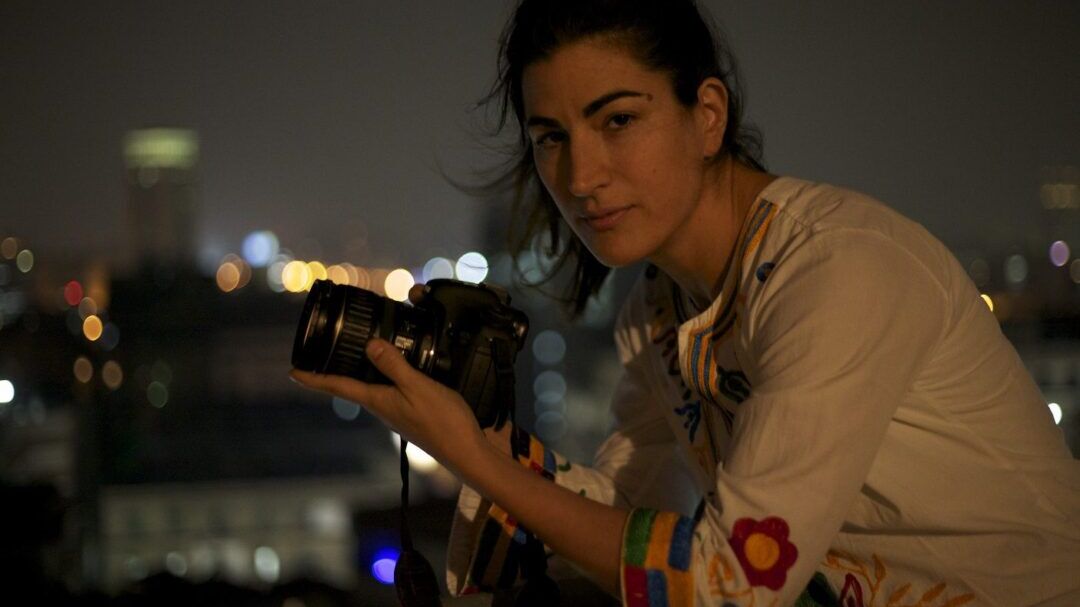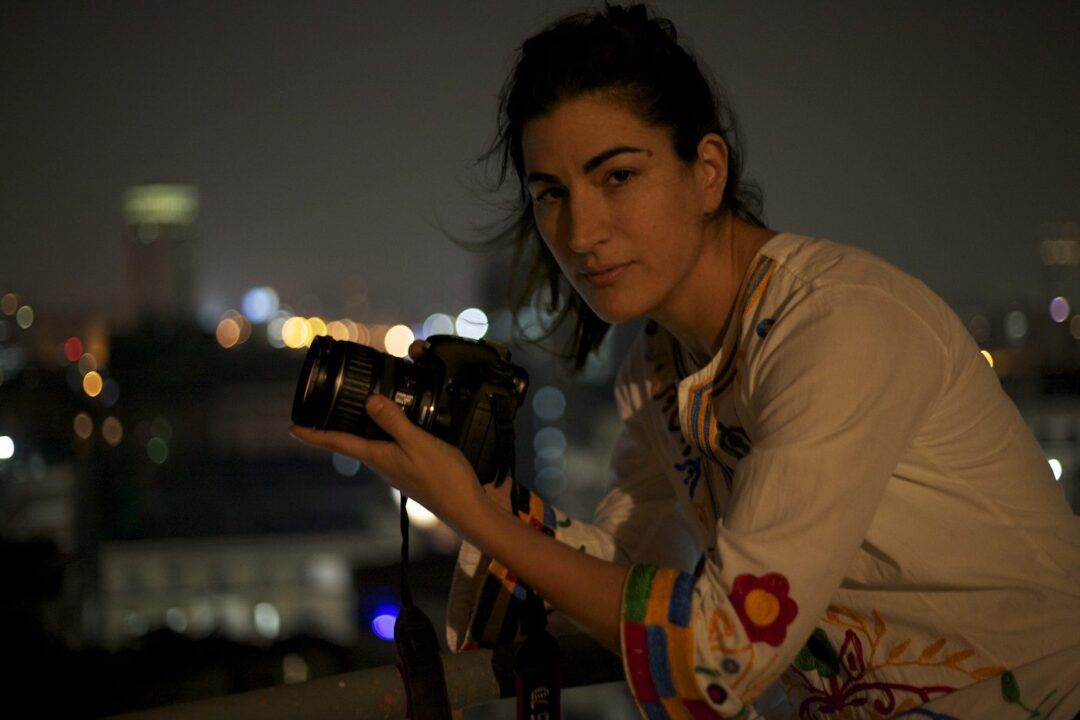 [soundcloud url=”https://api.soundcloud.com/tracks/134614231″ params=”color=ff5500&auto_play=false&hide_related=false&show_artwork=true&show_comments=true&show_user=true&show_reposts=false” width=”100%” height=”100″ iframe=”true” /]
[soundcloud url=”https://api.soundcloud.com/tracks/134614231″ params=”color=ff5500&auto_play=false&hide_related=false&show_artwork=true&show_comments=true&show_user=true&show_reposts=false” width=”100%” height=”100″ iframe=”true” /]
It’s the poster you’ve seen everywhere, the long-talked about documentary that has campaigned through social media and Netflix has finally been released and its impact is making waves through Hollywood. Sitting down with director Jehane Noujaim during her whirlwind press tour was inspiring both as a cineophile and a human being; her dedication to her Egyptian community and her graciousness about her Academy Award nomination made our time together enlightening. Across the giant wooden table at the Netflix Headquarters, Jehane sits down and smiles. We begin:
I LIVE IN LA AND JUST DRIVING DOWN THE STREET YOU SEE BILLBOARDS AND POSTERS FOR YOUR FILM EVERYWHERE, WHAT HAS THAT BEEN LIKE FOR YOU?
It’s incredible; making a documentary, you never know if anybody’s going to ever see it. This has been a dream come true, I’ve worked on many films but this has been the film that has come out in the biggest way, and we really attribute Netflix to that. [Netflix] has gotten the film out to 47 countries and the idea that this film is coming out is so widely seen and supported by an international community now… is so important for the ongoing struggle in Egypt right now. Those people who you see in the film are still fighting, everyday.
WAS IT DIFFICULT TO BE BOTH A FILMMAKER AND A PROTESTOR WHILE FILMING?
I was there first as an Egyptian and a protester; I grew up in Egypt, 10 minutes away from the square, and I had a huge stake in what was going on. I followed [the revolution] because I saw magic and beauty in this unrelenting desire to put everything on the line to change the country, and that I wanted to share with the rest of the world. It’s not easy, but overall you’re telling the story of change.
WHEN YOU WOULD GO TO BED AT NIGHT, WHAT WOULD YOU THINK ABOUT? WAS YOUR MIND RACING FROM FILMING ALL DAY?
For a long time we had an office 5 minutes away from Tahir Square and we were filming and editing at the same time, and we had to keep remembering that we were telling this character driven story. So, for example, there was a massacre that happened in a town a few hours away and [my] team said ‘we have to go there, we have to film it’ but none of our characters were there and I said no. I said someone can take one of the cameras and go if you need to film it for evidence, and we did a lot of that kind of filming, but you really do have to keep concentrated on the character storyline.
WHAT WAS THE CASTING PROCESS LIKE, HOW DID YOU FIND YOUR CHARACTERS?
We were following about 8 people at the beginning, but why we ended up concentrating on Ahmed [Hassan], Magdy [Ashour] and Khalid [Abdalla] was because of their fascinating personalities and because they also were dedicated to using that square, that public piece of land as a political tool for change… When we told Ahmed that the film was Oscar nominated he just said ‘I wanna cry for joy because this means our story will never be able to be silenced’.
WHO DID YOU USE TO SHOOT FOOTAGE?
I always shoot my own stuff because it’s one of my favorite parts of making a film. Mohammed Hamdy was our main Director of Photography and he taught us all how to use these Canon cameras. We got a couple of protestors to be sound guys and they learned how to use the sound equipment and Ahmed learns how to use the camera halfway through the process and so a lot of the footage from the front lines is Ahmed shooting, the camera became a weapon for him.
WHAT WAS THE INSPIRATION FOR THE POSTER?
I fell in love with the work of Omar, the graffiti artist and he is, to me, the embodiment of some of the most exciting change that has happening out of Egypt. The success or failure of this uprising in the last three years cannot only be measured by political outcomes, but also by the incredible art that has emerged from this movement: poetry, art and song. The tear gas would be flying and Omar would be continuing to paint on the walls. A person would be killed and that person’s face would be spray painted around all the walls of downtown Cairo basically saying, ‘you may not write about this, this may not be on television, but we will make sure that you see this person.’
WAS THERE A MOMENT WHEN YOU WANTED TO STOP MAKING THE FILM BECAUSE IT WAS JUST TOO MUCH?
No, when I started on this process, we asked these characters to open their lives and to trust us and that we would tell this story to the world, and they did. When you make that decision, you’re making a commitment to everybody that has given blood, sweat and tears to this film.
Morgan Rojas
Certified fresh. For disclosure purposes, Morgan currently runs PR at PRETTYBIRD and Ventureland.


